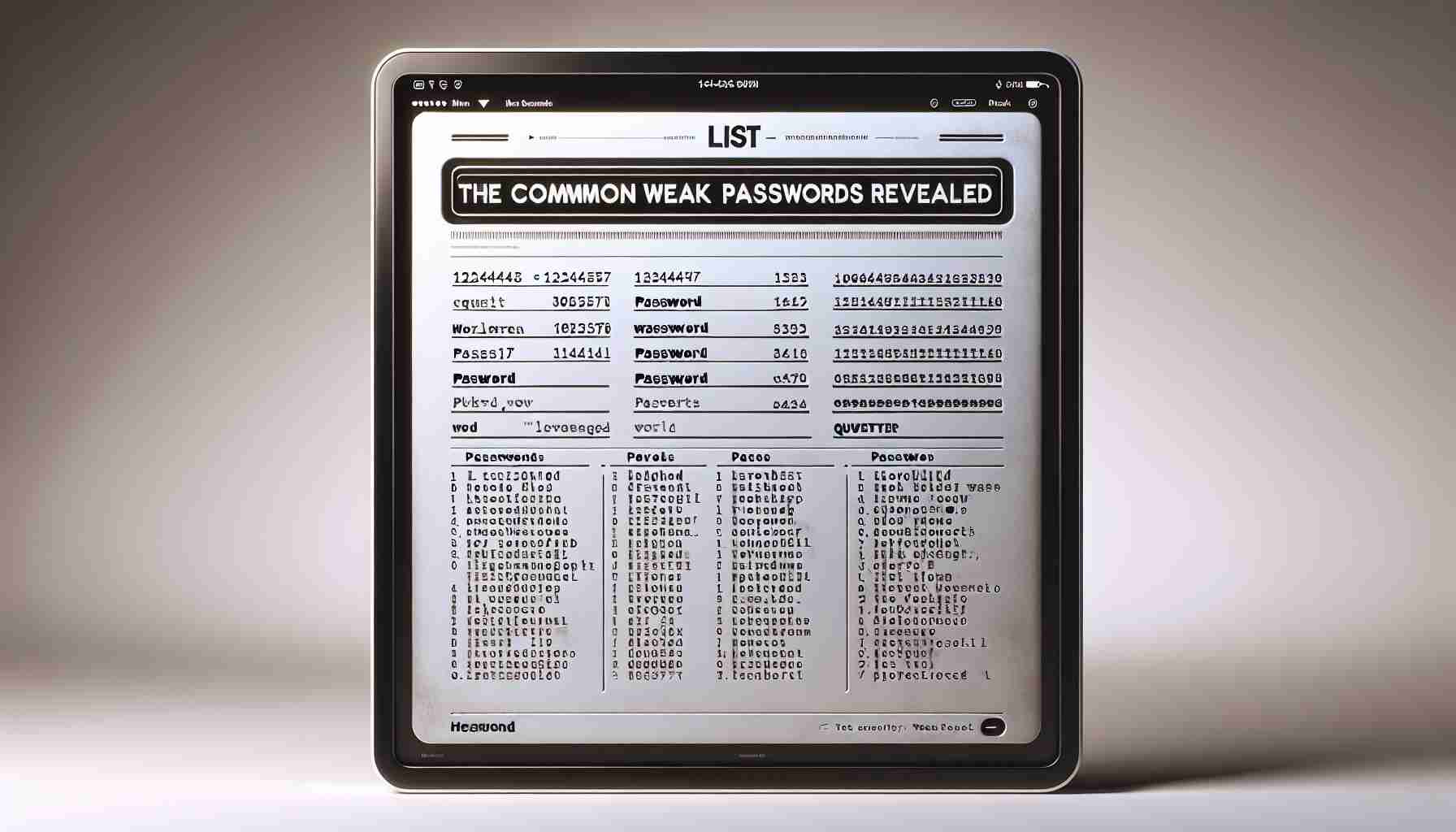In today’s digital age, the significance of using robust passwords is widely recognized. However, many individuals continue to opt for easily guessable ones, as highlighted in a recent report by a well-known password management service. This annual study, which has been conducted for six years, analyzes compromised passwords from various cyber incidents, including malware attacks and data breaches.
This year’s findings span across 44 nations, showing surprising variations in password choices by region. For example, the most frequently used weak password in Canada was “qwerty123,” while in the United States, it was simply “secret.” Remarkably, the universal most popular password across all analyzed countries was the numerical sequence “123456,” indicating a widespread failure to prioritize password security.
The report not only included personal password choices but also highlighted corporate passwords. Some of the findings were particularly striking, such as the appearance of the password “aaron431” among the most commonly used corporate passwords in the U.S. This peculiar entry raises questions about its origin and whether it stems from a significant security breach at a prominent organization.
As individuals and businesses alike continue to ignore the importance of secure passwords, these findings serve as a cautionary reminder. Creating strong and unique passwords is essential for safeguarding personal and corporate information in an increasingly interconnected world.
The Most Common Weak Passwords Revealed: A New Perspective on Password Security
In an era where digital threats are rampant, the debate surrounding password strength has never been more relevant. Recent analyses of common passwords have uncovered that users often resort to simple, memorable passwords that can lead to significant vulnerabilities. While many are aware of the top contenders like “123456” or “password,” a deeper exploration into password habits reveals additional patterns and practices that merit attention.
This year’s study underscores that not all passwords are equal, and certain characteristics make them particularly susceptible to hacking. For instance, research indicates that passwords which include easily guessable personal information, such as birthdays or family names, rank among the least secure. Furthermore, a significant rise in the use of phrases from popular culture, such as “letmein” or song lyrics, has been noted, further complicating the landscape of password security.
Key questions arise from these findings:
1. What makes certain passwords weak?
Passwords that are commonly used, easily guessable, or include readily available personal information are typically classified as weak. Cybersecurity experts recommend using a mix of letters, numbers, and special characters.
2. How does culture and geography influence password choices?
Certain phrases or sequences gain popularity within specific cultures or countries. Regional trends can highlight a lack of awareness regarding password security, leading to collective vulnerabilities.
3. What role do organizations play in the password practices of individuals?
Companies often set password requirements that (while hopefully secure) can inadvertently lead employees to choose less secure passwords due to difficulty in remembering them. This confusion can result in minimal compliance with security best practices.
Challenges and controversies surround the use of weak passwords. For example, while implementing mandatory password change policies can theoretically enhance security, they risk leading to confusion and frustration among users, causing them to revert to easily remembered and thus weak passwords.
Advantages of strong passwords include:
– Enhanced security: A robust password can significantly decrease the likelihood of unauthorized access.
– Increased trust: Organizations that enforce strong password policies may enhance user trust and loyalty.
Disadvantages include:
– User resistance: Many users find stringent password policies cumbersome, leading to non-compliance or poor password habits.
– Accessibility concerns: Complicated password requirements might leave some users unable to effectively manage their passwords, especially those with cognitive challenges.
In conclusion, the ongoing prevalence of weak passwords represents a significant challenge for cybersecurity across both personal and organizational domains. Users are encouraged to adopt better password practices and utilize tools such as password managers to facilitate the use of strong, unique passwords consistently.
For more insights on password security and best practices, visit Cyber Security Awareness and Password Today.










